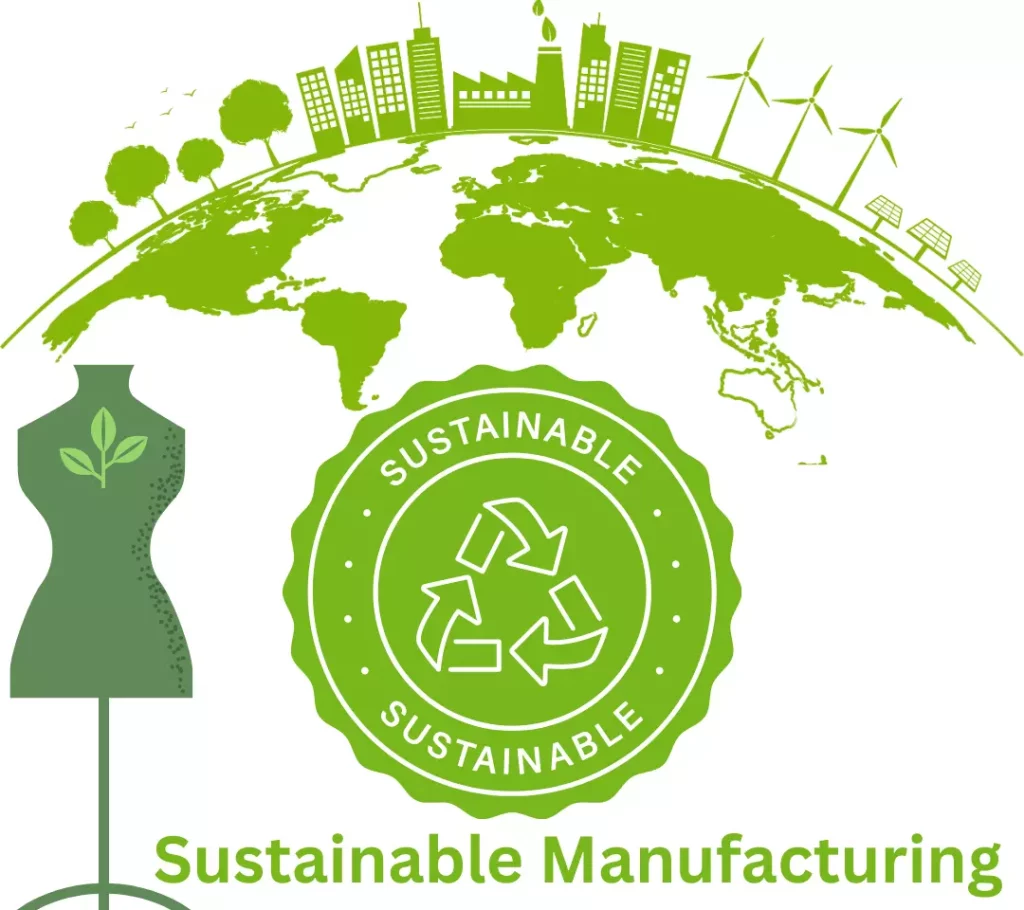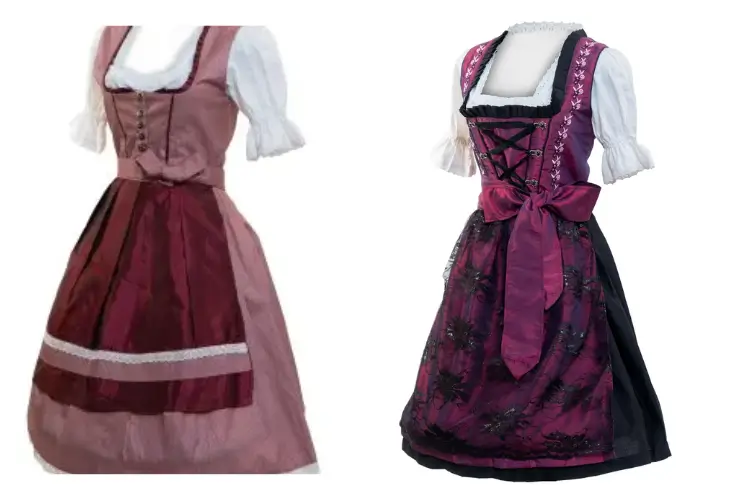The global apparel industry has long been under scrutiny for its social and environmental impact. From poor working conditions to environmental degradation. The fashion industry has faced criticism for its unsustainable practices. However, in recent years, there has been a growing awareness and demand for good practices in the global apparel industry that prioritize ethical and sustainable manufacturing processes.

These practices not only benefit the workers but also have a positive impact on the environment and society as a whole. In this article, we will explore the steps and best practices that the apparel industry can adopt to ensure ethical and sustainable manufacturing, along with real-world examples.
Here we will also discover the importance of good practices in the global apparel industry, including fair treatment of workers, environmentally responsible processes, transparent supply chains, and certifications. In addition, you will learn how brands can adopt ethical and sustainable manufacturing practices to promote a more sustainable future for the fashion industry.
Importance of Ethical and Sustainable Manufacturing in the Apparel Industry
Ethical and sustainable manufacturing practices are crucial in the apparel industry to address the social and environmental challenges associated with clothing production. The fashion industry is notorious for its exploitative labor practices, especially in developing countries where most of the clothing production takes place.
- Including low wages
- Long working hours, and
- Unsafe working conditions
Additionally, the fashion industry is a significant contributor to environmental degradation, with issues such as water pollution, waste generation, and carbon emissions associated with clothing production.
Adopting good practices in the global apparel industry is not only a moral responsibility towards workers and the environment but also a business imperative. Consumers are increasingly demanding transparency and sustainability in their clothing choices, and brands that fail to meet these expectations risk losing market share.
Furthermore, regulatory bodies and industry watchdogs are also imposing stricter standards and regulations to ensure ethical and sustainable manufacturing practices. Therefore, implementing good practices in the global apparel industry is not only the right thing to do but also essential for the long-term success of clothing brands.
Steps Towards Ethical and Sustainable Manufacturing
To ensure ethical and sustainable manufacturing in the global apparel industry, brands and manufacturers need to adopt a holistic approach that encompasses various aspects of production, from labor practices to environmental stewardship. The following are the key steps that can help achieve this goal:
Fair Wages and Working Conditions for Workers
One of the fundamental aspects of ethical manufacturing in the apparel industry is ensuring fair wages and working conditions for workers. Brands and manufacturers should prioritize the well-being and safety of their workers by providing fair compensation, reasonable working hours, and safe working conditions. This includes complying with local labor laws, providing appropriate protective gear, and offering access to clean water, sanitation, and healthcare facilities.
For example, outdoor apparel brand Patagonia is known for its commitment to fair labor practices. The company conducts regular audits of its supply chain to ensure that its workers are paid fair wages, work in safe conditions, and have access to healthcare and other essential facilities. Patagonia also advocates for policies that protect workers’ rights and promotes fair labor practices across the industry.
Environmentally Responsible Practices
Another crucial aspect of ethical manufacturing in the apparel industry is adopting environmentally responsible practices. Clothing production has a significant environmental impact, including water pollution, waste generation, and carbon emissions. Brands and manufacturers should implement measures to reduce their environmental footprint and promote sustainability.
For instance, using organic and recycled materials, reducing water usage in production processes, and implementing waste reduction and recycling programs are some of the environmentally responsible practices that can be adopted in the apparel industry. Large companies can also invest in research and development to explore innovative and sustainable materials and technologies that minimize the environmental impact of clothing production.
For example, Swedish fashion brand H&M has launched its “Conscious” collection, which features clothing made from sustainable materials such as organic cotton, recycled polyester, and Tencel. H&M also has a global garment collection program that encourages customers to bring in their old clothes for recycling, reducing the amount of clothing that ends up in landfills.
Supply Chain Transparency and Traceability
Supply chain transparency and traceability are essential in ensuring ethical and sustainable manufacturing in the apparel industry. Brands should have a clear understanding of their entire supply chain, from raw material sourcing to final product manufacturing, and should work towards ensuring transparency and traceability at every step.
This includes conducting audits and assessments of suppliers’ labor practices, environmental impact, and social responsibility, and holding them accountable for compliance with ethical standards. Clothing manufacturers should also establish long-term partnerships with suppliers and work collaboratively towards continuous improvement in ethical and sustainable practices.
For example, outdoor clothing brand The North Face has implemented a comprehensive traceability program that allows them to track their supply chain from farm to factory. They have partnered with suppliers to ensure responsible sourcing of materials, including down feathers, and have established a certification process to ensure that their suppliers meet strict ethical and environmental standards.
Collaborations and Certifications for Ethical Manufacturing
Collaborations and certifications play a crucial role in promoting ethical manufacturing in the apparel industry. Brands can collaborate with industry organizations, NGOs, and other stakeholders to collectively address social and environmental issues and drive positive change. Collaborations can include joint initiatives for worker empowerment, community development, and environmental conservation.
Certifications such as Fair Trade, Global Organic Textile Standard (GOTS), and Bluesign are recognized standards that ensure ethical and sustainable manufacturing practices. Manufacturers can seek certifications for their products, which provide assurance to consumers that their clothing has been produced in a socially and environmentally responsible manner.
For example, outdoor clothing brand Patagonia has collaborated with various organizations, including the Sustainable Apparel Coalition and the Fair Labor Association, to drive industry-wide initiatives for sustainable and ethical manufacturing. Patagonia also holds certifications such as Fair Trade and GOTS for its products, providing transparency and assurance to its customers.
Conclusion
In conclusion, the global apparel industry has a responsibility to prioritize ethical and sustainable manufacturing practices. Through fair treatment of workers, environmentally responsible processes, transparent supply chains, and certifications, brands can make a positive impact on the industry and promote a more sustainable and responsible approach to clothing production. By adopting good practices, the apparel industry can contribute to a more socially and environmentally conscious future, where fashion is not only stylish but also ethically produced. Let us strive towards a global apparel industry that values people, the planet, and prosperity for all.
Ethical and sustainable manufacturing practices in the global apparel industry are imperative for creating a positive impact on workers, the environment, and society as a whole. Brands and manufacturers need to adopt a holistic approach that encompasses fair wages and working conditions for workers, environmentally responsible practices, supply chain transparency and traceability, and collaborations and certifications. By implementing these good practices, the apparel industry can move towards a more sustainable and ethical future, ensuring a brighter future for workers, consumers, and the planet.
FAQs
1) What are the benefits of ethical and sustainable manufacturing in the apparel industry?
Ethical and sustainable manufacturing practices in the apparel industry have several benefits, including improved working conditions for workers, reduced environmental impact, increased consumer trust and loyalty, compliance with regulations, and long-term business sustainability.
2) How can brands ensure supply chain transparency in the apparel industry?
Brands can ensure supply chain transparency in the apparel industry by conducting audits and assessments of suppliers, establishing long-term partnerships, using technology for traceability, and collaborating with industry organizations and stakeholders to collectively drive transparency and accountability.
3) What certifications ensure ethical manufacturing in the apparel industry?
Certifications such as Fair Trade, Global Organic Textile Standard (GOTS), Bluesign, and others are recognized certifications that ensure ethical manufacturing in the apparel industry. These certifications provide assurance to consumers that the products have been produced in a socially and environmentally responsible manner.


